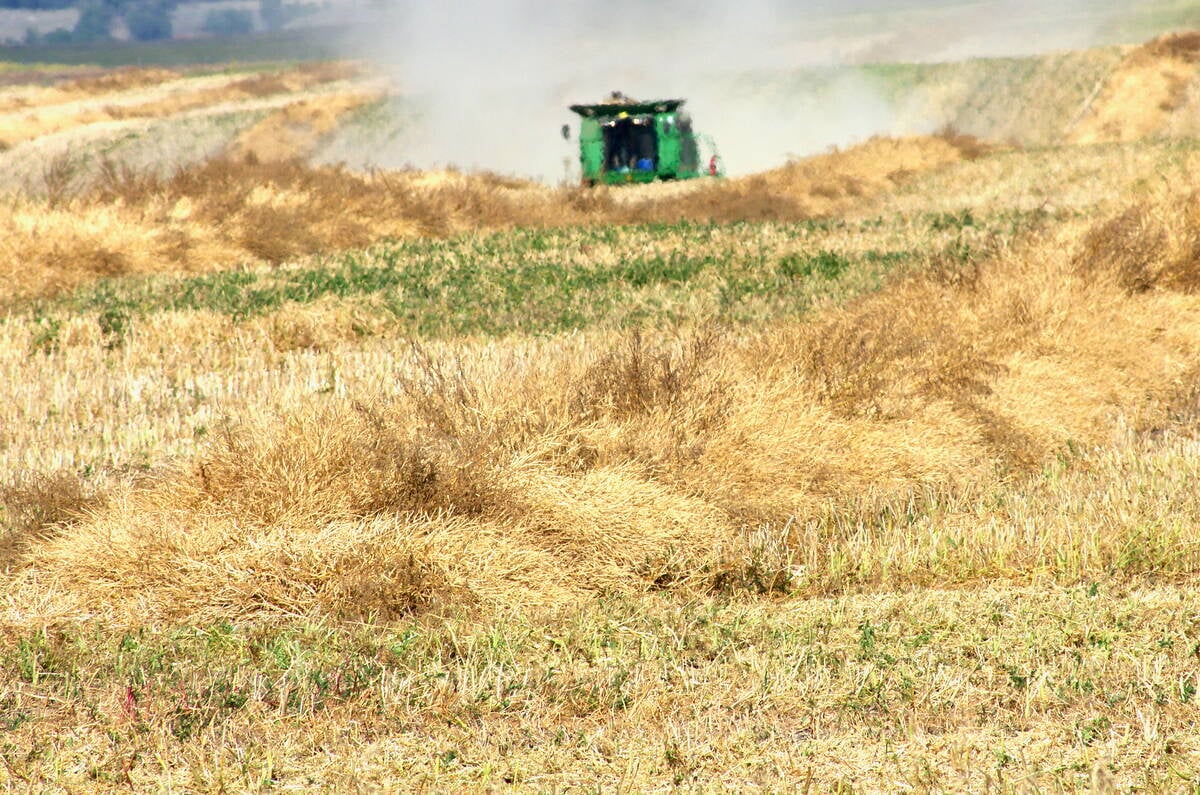Western Producer Ottawa correspondent Barry Wilson travelled to Geneva and filed these reports from the WTO trade negotiations.
GENEVA — The World Trade Organization’s Doha Development Round of negotiations began, figuratively and literally, in the shadow of the terrorist attacks in the United States on Sept. 11, 2001.
Two months after the attacks, hundreds of trade and agriculture ministers and officials met in the small Middle East nation of Qatar, a rich and tightly controlled absolute monarchy that made sure there were few WTO dissenters to repeat the riots at the previous ministerial meeting that turned it into the Battle of Seattle.
Iran lay across the Persian Gulf from the conference centre and beyond that Afghanistan, where the terrorist attacks had been planned. An American warship sat at anchor off the summit site, ready to evacuate Americans from the city if there was an attack.
Read Also

Manitoba searches for Plan B on canola oil exports
A new report explores Manitoba’s current canola oil trade and possible alternative markets to the U.S.
A plane crash in New York City, at first thought to be terrorism but later determined to have the more mundane explanation that someone forgot to tighten engine bolts, added fear and urgency while closing down the session for part of a day as threats of attack were assessed.
The still shell-shocked ministerial delegates seemed determined to launch a new round of negotiations almost as if to make a statement that the world economy still was functioning and neither terror nor protesters would derail the project.
There were also pressures to expand the trade liberalization that had started tentatively seven years earlier with the Uruguay Round deal.
The focus this time was to be new trade rules that would help poor countries prosper, hopefully ending poverty-driven unrest.
But negotiations to forge a mandate that also considered developed country issues were tense and often led to all-night negotiating sessions. Until the last moment, a negotiating launch was far from certain.
In the end, when India cast its last reluctant yes vote, a round was started and delegates cheered.
But there was little real enthusiasm beyond the fact they had done it.
Subsequent on-again, off-again negotiations and stalemates showed the weaknesses in the mandate and political will.
Developing countries demanded concessions by rich countries on market access and subsidy cuts while leaving them untouched as they caught up.
Developed countries increasingly pushed back, noting that some of the “developing countries” were really emerging economic powerhouses, such as China, India and Brazil, that already were competitive.
Add to that the growing presence of anti-capitalism demonstrators and skeptical developing world advocates at every meeting and the Doha Round quickly became dysfunctional. Two years after Doha, talks collapsed in Cancun, Mexico.
Small breakthroughs were made two years later in Hong Kong, but again, differences about expectations and outcomes scuttled any agreement as thousands of advocates rioted in the streets.
There has been little movement for the past three years, other than regular professions from politicians of belief in the need to complete the Doha Round and proclamations of new political will from WTO director general Pascal Lamy.
Last month, the Doha Round passed its tenth birthday, the longest in the history of global trade talks.
Last week, trade ministers meeting in Geneva essentially admitted defeat without calling it that, insisting that Doha must be pursued but with a change in strategy and focus.
There is a stalemate, said Australian trade minister Craig Emerson.
“It’s time to call a spade a spade,” said European Union trade commissioner Karel De Gucht.
“We need to recognize that our credibility has been seriously damaged by our failure to get Doha off the ground, even partially.”
Last week’s ministerial meeting promised new approaches while insisting the Doha Round is alive.
It put off more difficult questions about the future for the next two years until ministers meet again.














